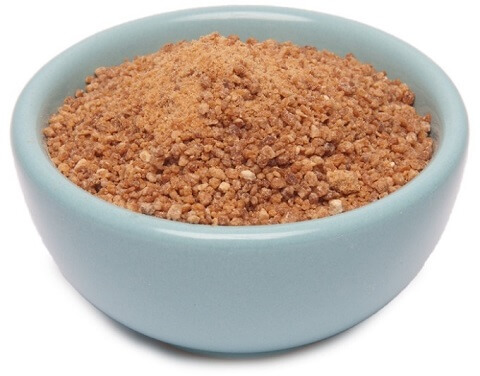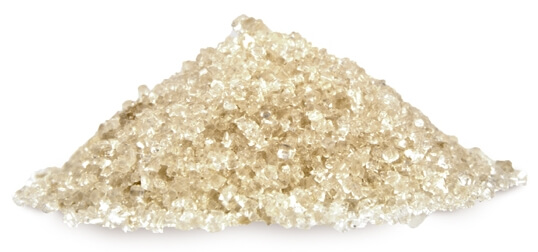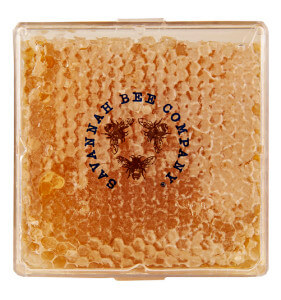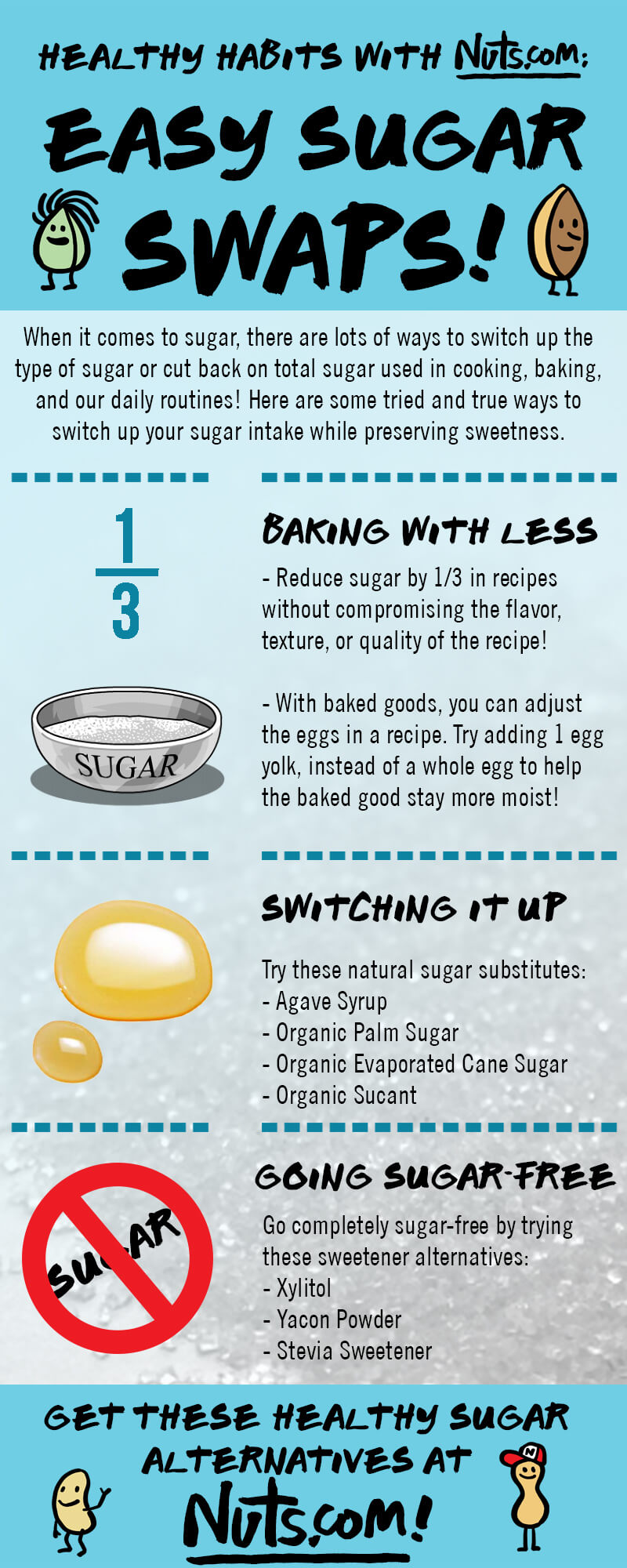Nuts.com’s Guide to Natural Sugar Substitutes

Forget the refined sugar and choose one of these natural sugar substitutes instead! Our all natural sweeteners are unprocessed or minimally processed to retain important nutrients. They’ll add the perfect touch of sweetness to your beverages, oatmeal, baked goods and more. Plus, many of them have a low-glycemic index, which makes them a great alternative choice for people watching their blood sugar levels. We’ve included sugar substitution / conversion guidelines, so swapping them into your recipes is as easy as can be! Now isn’t that sweet?
Made from the sap of the coconut palm tree, this all natural sugar substitute has a consistency and color that is similar to brown sugar. It is a low-glycemic sweetener that contains small amounts of minerals. Coconut palm sugar is best used in cookies, muffins, and other baked goods, as opposed to white or light-colored desserts.
Sugar Substitution: 1 cup table sugar = 1 cup palm sugar
2) Agave Syrup
Derived from the blue agave plant, this low-glycemic syrup is the sweetener of choice for calorie-conscious consumers. Since less agave syrup is needed in recipes compared to the original quantity of sugar, you’ll be getting fewer calories overall. We also carry agave inulin powder, which makes a good substitute for sugar in icing.
Sugar Substitution (syrup): 1 cup table sugar = 2/3 cup agave syrup. Also reduce the liquid in the recipe by 1/4 cup.
Sugar Substitution (powder): 1 cup table sugar = 1 cup agave inulin powder
Ground from the leaves of the stevia herb, this powder has a naturally intense sweet taste. Since stevia is free of sugar and calories, it is considered a good alternative sweetener for people looking to control their blood sugar levels. Stevia has a much sweeter taste than sugar, so make sure to adjust your recipes accordingly.
Sugar Substitution: 1 cup table sugar = 1/3 -1/2 teaspoon stevia powder. To replace the lost volume of sugar, use 1/3 cup of a bulking agent per 1 cup of sugar substituted. Bulking agents include egg whites, fruit puree or yogurt.
This sweetener is made from the crystals that form when sugar cane juice evaporates. It is not as processed as table sugar, so it retains more nutrients from the sugar cane. It is a wonderful sweetener for baking, and can also be used to sweeten coffee, tea, oatmeal, etc.
Sugar Substitution: 1 cup table sugar = 1 cup evaporated cane juice
A non-refined cane sugar, sucanat retains its molasses content for a darker color and richer flavor than white sugar. Its bitter molasses flavor makes sucanat a perfect substitute for brown sugar in baking and other recipes.
Sugar Substitution: 1 cup brown sugar = 1 cup sucanat. It can also serve as a replacement for white sugar in recipes like brownies, gingerbread, and other richly flavored baked goods.
6) Honey
Straight from the beehive, honey is a perfect, all natural alternative to table sugar. At Nuts.com, we carry both organic and unprocessed varieties of honey for the best quality. Honey is delicious spread over muffins, cornbread, and other baked goods, or used to sweeten tea. It can also be substituted for refined sugar in baking.
Sugar Substitution: 1 cup table sugar = 1 cup honey. For quantities over 1 cup, use about 2/3-3/4 cup of honey for every cup of sugar.
7) Xylitol
A sweetener that’s actually good for your teeth? Yep, that’s xylitol! Naturally found in the fibrous parts of plants, xylitol has been shown to control cavity-causing bacteria in the mouth. Your dentist will thank you for it, as will your recipes! Use it in baking or to add a touch of sweetness to beverages. Just remember that xylitol is highly absorbent so you may need to add more liquid to your recipes.
Sugar Substitution: 1 cup table sugar = 1 cup xylitol
Check out these simple sugar swaps recommended by our Registered Dietitian:
What are your go-to natural sugar substitutes?




Leave a Reply